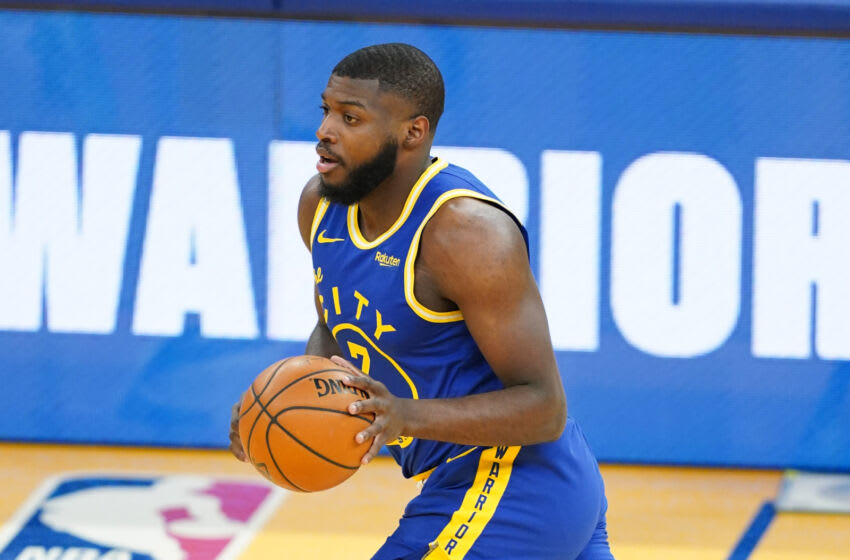Utah Jazz offseason: Grading the Eric Paschall trade
The Utah Jazz have acquired 24-year-old forward Eric Paschall for the minimal cost of a future protected second-round pick from the Golden State Warriors.
Midway through Paschall’s rookie season, it would have seemed highly unlikely that he would become available for, effectively, one of the lowest possible prices in the NBA trade market. Now, Paschall is a member of the Utah Jazz, and it cost GM Justin Zanik almost nothing to acquire him. How did Paschall become available, and what does he offer (or not) to Utah’s push towards title contention?
The second-year forward’s minutes dropped significantly between his rookie and sophomore campaigns, from 27.6 a night down to 17.4. In all likelihood, suspect defense was the culprit for his decreased responsibility. Paschall’s Defensive Rating of 113 grades as below league average; at 6’6 and 250 pounds, he has struggled to avoid the dreaded “tweener” label.
Still, Paschall is not without value to the Utah Jazz. While his minutes per game decreased, his points per 36 minutes actually took a meaningful jump between his two seasons, from 18.2 to 19.7. Let’s strap on the rose-coloured glasses, and take a look at what Paschall does offer to the Jazz.
Utah Jazz scoring
Positional ambiguity aside, there is one thing Paschall can undeniably do at an NBA level: score the basketball.
Those 19.7 points per 36 minutes were no coincidence. With a unique physical build, Paschall is adept at blowing by traditional big men and overpowering smaller wings. Furthermore, despite the regression in volume that coincided with his decreased playing time, Paschall’s three-point accuracy actually improved from 28.7 to 33.3% last season.
Those numbers may not leap off the page, but they point to solid spacing capabilities for a frontcourt player. Meanwhile, Paschall’s ability to create baskets for himself off of both drives and cuts can provide the Utah Jazz with an additional scoring punch.
Utah Jazz versatility
Widely regarded as a power forward, Paschall actually found success as a small-ball 5 in Steve Kerr’s system last season. With Utah’s recent acquisition of Rudy Gay, it’s possible that Paschall will struggle to crack Quin Snyder’s rotation, as the veteran forward projects as the Jazz’s primary backup 4 / occasional small-ball 5.
Still, having Paschall on the roster for the price of a future protected second-round pick affords the Utah Jazz the luxury of having two such players, after having been burned in the Western Conference semi-finals last season, in part, for having none. In the event that Gay gets injured or finds himself in a prolonged shooting slump, it will benefit the Jazz to have increased optionality in their frontcourt rotation.
Utah Jazz youth
Every contending NBA team has the same elephant in their locker room: if this doesn’t work, it will have to be rebuilt.
It is apparent from the Utah Jazz’s 2021 offseason that the front office intends to continue contending, and after finishing the 2020-21 regular season an NBA best 52-20, that seems like the most sensible course of action. Still, with a significant gap in the ages of their two best players (Donovan Mitchell is 24, while Rudy Gobert is 29), it’s easy to visualize two distinct timelines for the Jazzmen.
If the time comes that the Utah Jazz decide to move on from their bevy of valuable, win-now veterans and retool this roster around their 24-year-old dynamic scoring guard, this Paschall trade may end up looking like a stroke of genius.
In the meantime, Coach Snyder may have trouble designating substantial minutes to Paschall in this smart, defensive-minded, veteran Utah Jazz rotation. That’s fine. He’s a quality young player who is now available to suit up for the team if necessary, and it cost a pittance to acquire him.
Grade: B



